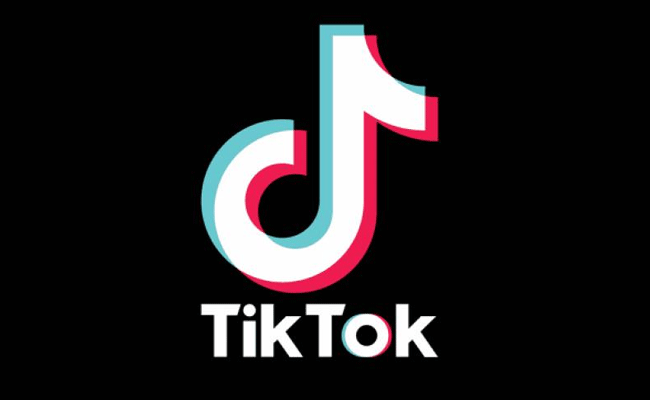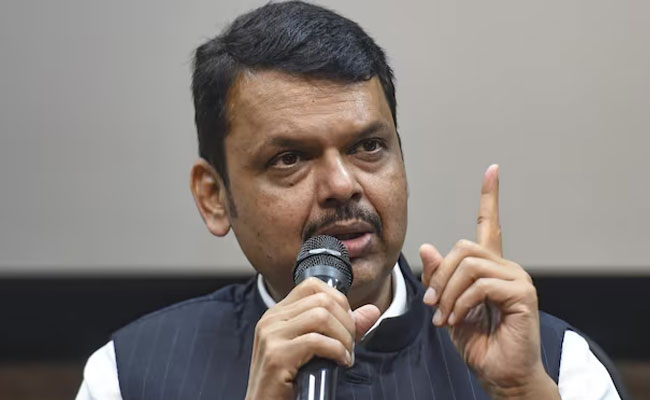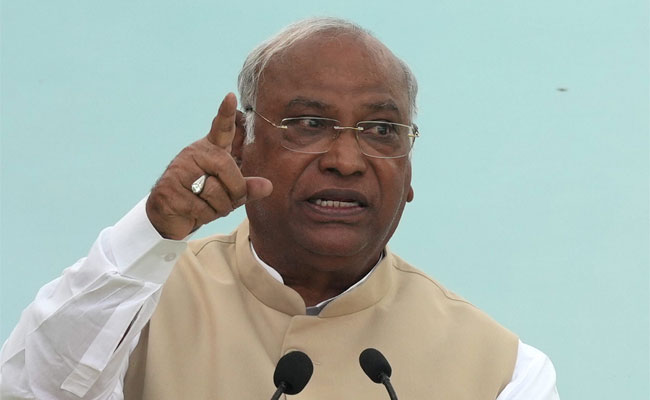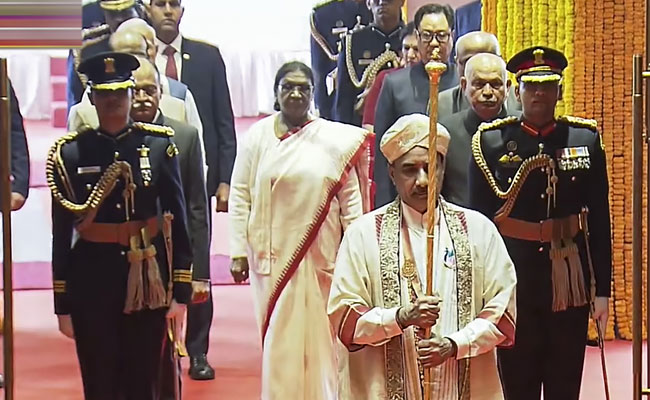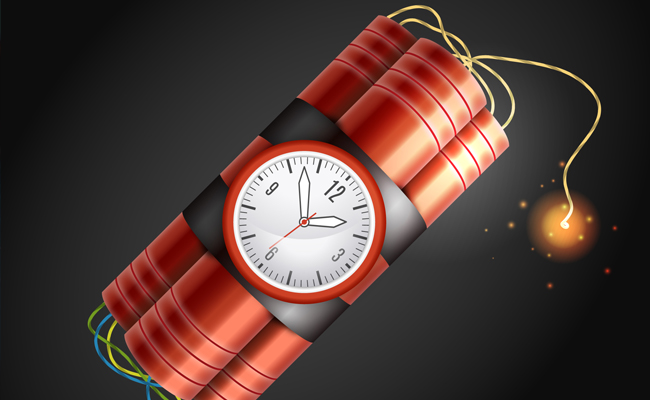Washington (AP): The CEO of TikTok will make a high-profile appearance Thursday before a US Congressional committee, where he'll face a grilling on data security and user safety while he makes his own case for why the hugely popular video-sharing app shouldn't be banned.
Shou Zi Chew's testimony comes at a crucial time for the company, which has acquired 150 million American users but is under increasing pressure from US officials.
TikTok and its parent company ByteDance have been swept up in a wider geopolitical battle between Beijing and Washington over trade and technology.
Chew, a 40-year-old Singapore native, is making a rare public appearance to counter the volley of accusations that TikTok has been facing.
On Wednesday, the company sent dozens of popular TikTokers to Capitol Hill to lobby lawmakers to preserve the platform. It has also been putting up ads all over Washington that tout promises of securing users data and privacy and creating a safe platform for its young users.
Chew plans to tell the US House Committee on Energy and Commerce that TikTok prioritises the safety of its young users and deny allegations that the app is a national security risk, according to his prepared remarks released ahead of the hearing.
TikTok has been dogged by claims that its Chinese ownership means user data could end up in the hands of the Chinese government or that it could be used to promote narratives favourable to the country's Communist leaders.
"We understand the popularity of Tiktok, we get that," said White House press secretary Karine Jean-Pierre at a press conference Wednesday afternoon. "But the President's job is to make sure again that the Americans, national security is protected as well. "
For its part, TikTok has been trying to distance itself from its Chinese origins, saying that 60 per cent of its parent company ByteDance is owned by global institutional investors such as Carlyle Group. ByteDance was founded by Chinese entrepreneurs in Beijing in 2012.
"Let me state this unequivocally: ByteDance is not an agent of China or any other country," Chew said.
A US ban on an app would be unprecedented and it's unclear how the government would go about enforcing it.
Experts says officials could try to force Apple and Google to remove TikTok from their app stores, preventing new users from downloading it as well as preventing existing users from updating it, ultimately rendering it useless.
The US could also block access to TikTok's infrastructure and data, seize its domain names or force internet service providers like Comcast and Verizon to filter TikTok data traffic, said Ahmed Ghappour, a criminal law and computer security expert who teachers at Boston University School of Law.
But a tech savvy user could still get around restrictions by using a virtual private network to make it appear the user is in another country where it's not blocked, he said.
To avoid a ban, TikTok has been trying to sell officials on a USD 1.5 billion plan called Project Texas, which routes all US user data to domestic servers owned and maintained by software giant Oracle.
Under the project, access to US data is managed by US employees through a separate entity called TikTok US Data Security, which employs 1,500 people, is run independently of ByteDance and would be monitored by outside observers.
As of October, all new US user data was being stored inside the country. The company started deleting all historic US user data from non-Oracle servers this month, in a process expected to be completed later this year, Chew said.
A number of Western countries including Denmark, Canada, and New Zealand, along with the European Union, have already banned TikTok from devices issued to government employees, citing cybersecurity concerns.
In the US, the federal government, Congress, the armed forces and more than half of states have banned the app from official devices.
David Kennedy, a former government intelligence officer who runs the cybersecurity company TrustedSec, agrees with restricting TikTok access on government-issued phones because they might contain sensitive military information or other confidential material. A nationwide ban, however, might be too extreme, he said. He also wondered where it might lead.
"We have Tesla in China, we have Microsoft in China, we have Apple in China. Are they going to start banning us now?" Kennedy said. "It could escalate very quickly."
Let the Truth be known. If you read VB and like VB, please be a VB Supporter and Help us deliver the Truth to one and all.
Mumbai (PTI): Maharashtra Chief Minister Devendra Fadnavis on Wednesday described Deputy CM Ajit Pawar’s tragic death in a plane crash as unbelievable, and said he had lost a good friend.
Fadnavis said “today” (January 28) will be a government holiday and there will be a three-day state mourning as a mark of respect to Pawar.
Ajit Pawar’s death has left a void that will never be filled, he said. “After working closely together, it is unbelievable that he is no more,” Fadnavis said.
Talking to reporters, Fadnavis described Pawar as a people’s leader who knew the state well and had a deep understanding of the issues in Maharashtra. He said it takes several years to build and establish such leadership.
Fadnavis said he had apprised Prime Minister Narendra Modi and Union Home Minister Amit Shah about the tragedy. The CM said he had also spoken with Ajit Pawar’s cousin Supriya Sule and his son Parth Pawar.
“Both (Deputy CM) Eknath Shinde and I are leaving for Baramati now. Once their entire family gathers in Baramati, we will share further details,” he said.
The entire state stands by Pawar’s family and his party NCP in this hour of grief, he added.
Ajit Pawar, 66, and four other persons were killed after an aircraft carrying them crashed in Maharashtra’s Pune district on Wednesday morning, officials said. The incident occurred when the plane carrying Pawar and others landed near Baramati, they said.
Several state BJP leaders, including Ashish Shelar, Ravindra Chavan and Chandrashekhar Bawankule, expressed deep grief over Pawar’s passing.
“This heart-wrenching incident has left the mind numb. Maharashtra has lost an experienced, dutiful and resolute leader,” state minister Shelar said.
Pawar left a distinct imprint on the state’s politics through his strong grip over administration, decisiveness and relentless drive for Maharashtra’s all-round progress. “Firmness, discipline, punctuality and tireless dedication were defining aspects of his personality,” he said.
BJP state president Ravindra Chavan said Maharashtra’s politics was unimaginable without Pawar. He said Pawar was known as a dynamic leader with a powerful command over administration and an unwavering focus on the state’s comprehensive development.
He said Pawar held the record for serving the longest tenure as deputy CM in the state’s history and left an indelible mark while handling key portfolios such as irrigation, energy and finance. “With his passing, Maharashtra has lost a firm, disciplined, punctual and indefatigable leader. This void can never be filled,” Chavan said.
Revenue Minister Chandrashekhar Bawankule described Pawar as a senior friend and guide. “Even now, it is difficult to accept that this tragedy has really happened,” he said. Pawar would be remembered as a true people’s leader who gave clear direction and unstoppable momentum to Maharashtra’s all-round development, Bawankule said.
Recalling Pawar’s immense administrative experience, Bawankule said he had personally sought the NCP leader’s advice on several occasions.
“The loss of Ajitdada is not merely the departure of one leader; it is a profound loss for Maharashtra itself. The nation has lost a visionary statesman, and I have lost a dear elder friend and guide,” Bawankule said, adding that the reality of Pawar no longer being among them felt impossible to accept.
VIDEO | Maharashtra CM Devendra Fadnavis expresses grief over the demise of Deputy CM Ajit Pawar in an aircraft crash. He says, “This morning, a very tragic incident occurred. In extremely unforeseen circumstances, the news of the unfortunate demise of our state’s deputy chief… pic.twitter.com/sKIKJ5FvRW
— Press Trust of India (@PTI_News) January 28, 2026

